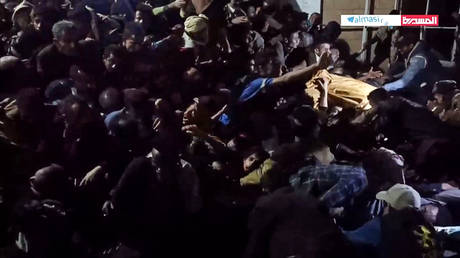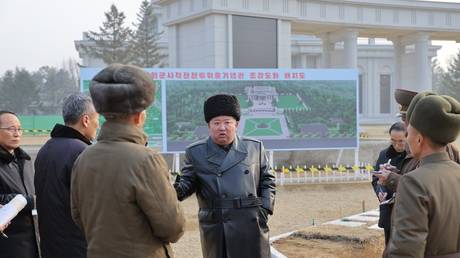
The stampede in Yemeni capital Sanaa unfolded during the Muslim holiday of Ramadan amid a severe humanitarian crisis
A charity event turned into a tragedy in Yemen’s capital, Sanaa, with at least 78 people losing their lives in a stampede on Wednesday. Local Houthi authorities were quick to lay the blame on Saudi Arabia, accusing it of triggering a severe humanitarian crisis by imposing a blockade on the war-torn country.
According to AFP, citing a Houthi security official, more than 300 people sustained injuries in the incident. Yemen’s Al Masirah TV channel reported that 13 people were in critical condition.
In a statement, the Houthi-controlled Interior Ministry said that two businessmen had been handing out donations at a school as part of the Muslim holiday of Ramadan. People could reportedly receive no more than $10 each as part of the event.
Eyewitnesses told the media that Houthi militiamen had tried to control the crowd, including by firing shots in the air, although their efforts proved ineffective.
The Shiite movement that controls large swathes of Yemen accused event organizers of holding a “random distribution” of funds without due coordination with the authorities.
According to the Interior Ministry, the two businessmen have been arrested and an investigation has been launched.
Officials have also announced that they will pay compensations to the bereaved families and those injured in the stampede.
Commenting on the broader context of the incident, Mohamed Ali al-Houthi, head of the Houthi Supreme Revolutionary Committee, wrote on Twitter that Yemen was being ravaged by the “worst global humanitarian crisis.” In a series of tweets, he blamed the “countries of the US-British-Saudi-Emirati aggression and its allies” for the tragedy, and for the “bitter reality that the Yemeni people live in because of the aggression and blockade.”
He also called for the blockade of the country to be lifted.
According to the UN, over 24 million people in Yemen – 80% of the population – are in need of humanitarian aid and protection. It is estimated that almost 400,000 people have died as a direct or indirect result of the war in Yemen since 2015, with more than half being victims of hunger and inadequate healthcare.




